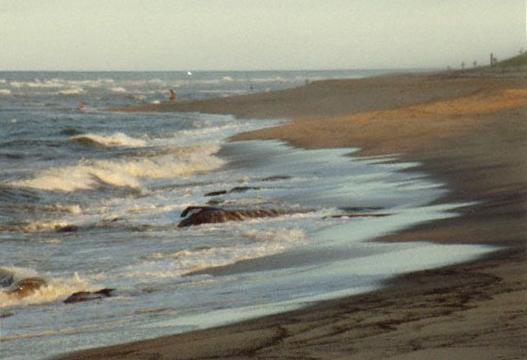Addressing climate change in our daily lives
Published on February, 34 2017
By Jan Hively, WILPF Cape Cod
The Cape Cod Branch challenges every branch on International Women’s Day, March 8, to honor the women in your region who have led successful environmental actions and to challenge your members to measure and reduce their individual and household carbon footprints.
Addressing Climate Change in Our Daily Lives: The WILPF Cape Cod Challenge
Actions taken at the Paris Climate Conference have inspired recent development of the Cape Cod Climate Change Collaborative (5Cs). Through the Collaborative, we can embrace the goals of the Paris Accord in our daily lives, here in the special and fragile environment we call home. WILPF Cape Cod joined the 5Cs in December and initiated a couple of programs to engage our members and friends and colleagues in mitigating climate change. From the local to the global, action on climate change is urgent.
 For Cape residents, the urgency for climate action it not just a matter of taking individual responsibility for our carbon footprint. Because the highest elevation on the Cape is only 305 feet above sea level, everyone is particularly vulnerable to rising seas, with salt water intrusion on fresh water sources for drinking water wells and the impact of septic systems on ground water, to say nothing of increasingly severe weather.
For Cape residents, the urgency for climate action it not just a matter of taking individual responsibility for our carbon footprint. Because the highest elevation on the Cape is only 305 feet above sea level, everyone is particularly vulnerable to rising seas, with salt water intrusion on fresh water sources for drinking water wells and the impact of septic systems on ground water, to say nothing of increasingly severe weather.
For International Women’s Day on March 8, WILPF is hosting a multimedia event at the Cultural Center of Cape Cod titled “Women Making Waves: Honoring Environmental Action.” We will honor a half dozen Cape Cod women who have made a positive difference by restoring native habitats, reduced the use of pesticides, gotten rid of plastic bags, grown good food for local consumption, preserved public space, and encouraged use of alternative sources of energy. The purpose is to show successful actions for change that will inspire and embolden more actions to ameliorate environmental degradation.
WILPF has challenged members to: a) measure and report on their 2016 individual and household carbon footprints, and b) set a goal for reducing their carbon footprints in 2017. We have asked our members to measure their household’s 2016 CO2 emissions by using the Environmental Protection Agency’s Carbon Footprint Calculator that takes into account Home Energy (heating and electricity), Waste, and Transportation. We have asked them to pledge improvements for 2017 after reviewing a list of “Twenty Actions to Reduce Your Carbon Footprint – where you live, work, or travel.”
At the March 8 event, we will report the average of the carbon footprints we have already received, and we will urge all of the people attending the event to use our handouts and join in the project. (Note that the national average for a household is approximately 28,000 lbs. of CO2 emissions annually.)
While WILPF’s challenge involves use of the EPA calculator, another 5Cs organization is challenging its members to use the Cool California Calculator that takes account of more sources of emission – including food, air travel, etc.
The Cape Cod Climate Change Collaborative is tracking the experiences of both organizations as plans develop for a campaign to reach every Cape Cod household in measuring and reducing carbon emissions.
Here’s a challenge to every WILPF branch!
- Honor the women in your region who have led successful environmental actions.
- Challenge your members to measure and reduce their individual and household carbon footprints. Invite other organizations to follow your example.
Let’s walk the talk for Climate Justice, Women, and Peace!
For more information:
email Laurie Gates at wilpf88@gmail.com or Jan Hively at hivel001@umn.edu
To order the Climate Justice+Women+Peace Infographic Card for your action:
email Marybeth Gardam mbgardam@gmail.com



